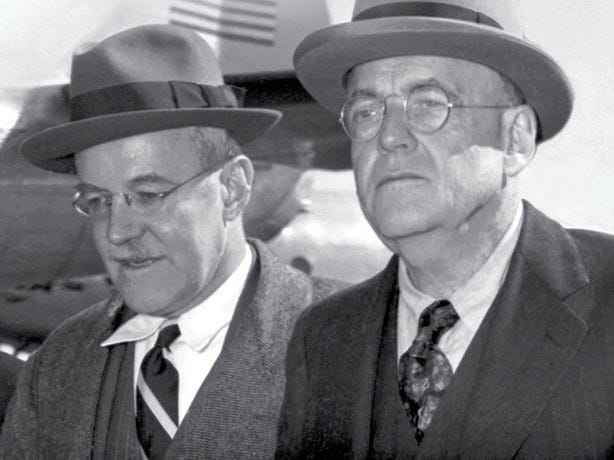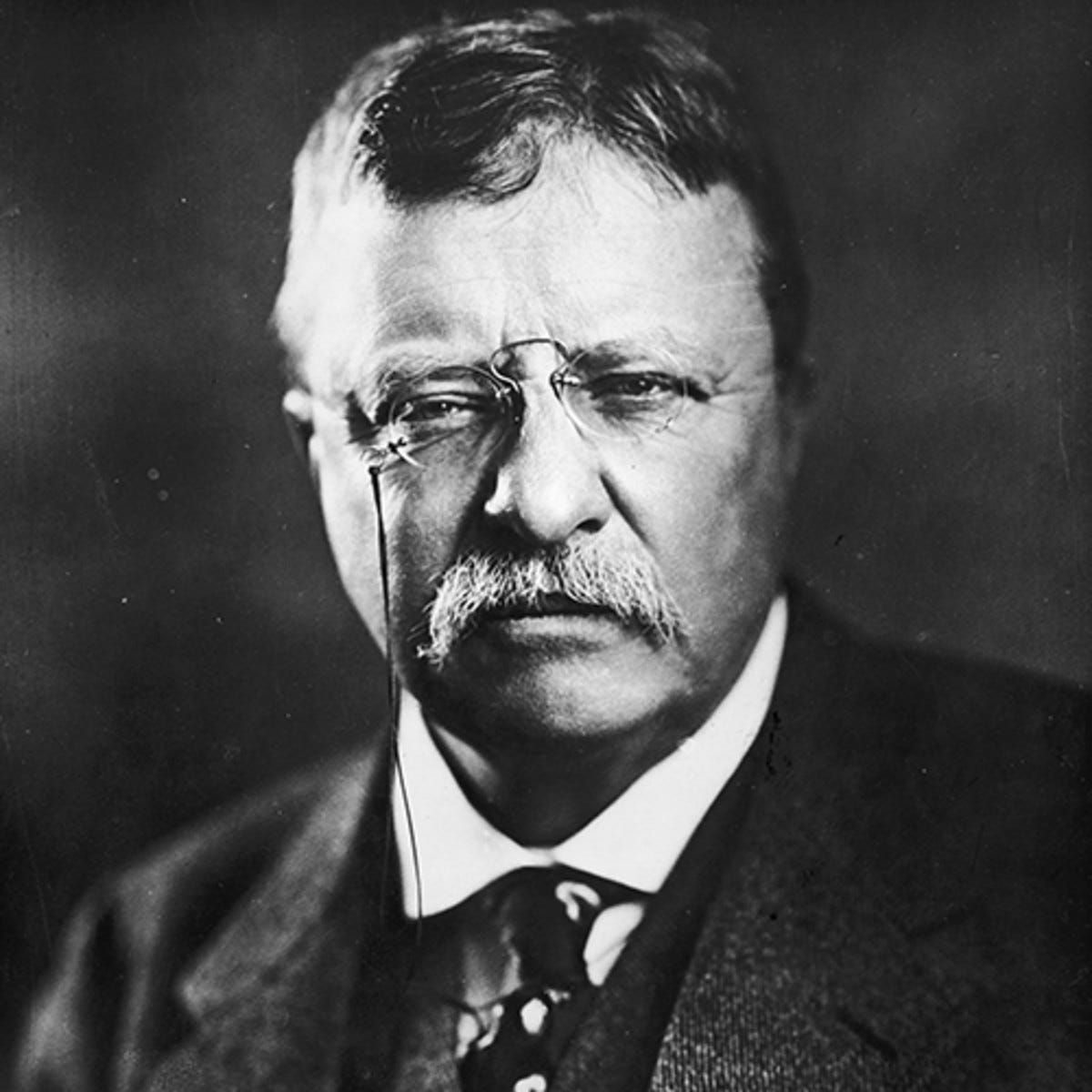Hello and happy Thursday, subscriber,
I hope you’ve had a resplendent first few days of August! Today marks the start of our review of Skipped History before Season 3 premieres on September 9th. (BTW, if you’re new here, welcome! You can learn more about the series here.)
I’ll send out three recaps between now and the 9th: one focused on why history is skipped 🤔; a second on the unchecked growth of white supremacy 🤦🏻♂️; and a third on the rise of mass incarceration 😡. Let’s get to it!
Why is history skipped?
Let’s begin with the obvious answer: politicians love propaganda, and not just about vaccines.
Take, for example, brothers Allen and John Foster Dulles, Director of the CIA and Secretary of State in the 1950s:
In 1954, they launched a coup in Guatemala. Why there? Well, after over a hundred years of dictatorship, Guatemala had just transitioned to democracy, and the country’s new president, Jacobo Árbenz, was understandably keen to diminish the Boston-based United Fruit Company’s oppressive hold on the economy.
Unbeknownst to Árbenz, both Allen and Foster previously worked for United Fruit as lawyers, and they remained loyal to their old pals. On top of that, Dull and Duller were Cold War warriors to their cores, equating threats to US businesses with attempts to spread Communism.
So, the brothers launched a disinformation campaign to discredit Árbenz’s economic reforms. Under Allen’s leadership, the CIA spread rumors in Guatemala that the new government planned to crack down on religious activity, expropriate all private property, and force children into reeducation centers. To generate further anxiety, US operatives produced and broadcast fake radio shows to make it seem like “rebels” were waging war all over the country.
When reporters in the US got wind that maybe the “rebels” weren’t real after all, Allen called in favors from friends at the Times and Time Magazine to quash the stories and instead print articles that depicted a brewing (and again, nonexistent) civil war. From there, the coup, which historian Stephen Schlesinger Jr. calls “one of the most devastating acts in the history of US foreign policy,” proceeded unhindered.1
Months later, Árbenz, also fooled into thinking that the enemy was at the gates, fled the country:
As this sordid tale suggests, and as we’ll witness again in Season 3, the lies that politicians and corporations feed the public often reverberate for decades.
Compared to Allen and Foster, Teddy Roosevelt was less of a master of deception than he was a maestro of misdirection:
Teddy pioneered many of the techniques presidents still use to achieve policy goals. He toured the country to promote his favored legislation, courted the Washington press corps, hired the government’s first press officers, and even hosted informal press conferences during his afternoon shave.2 (His nightly Teddy Tubby Time was a more private affair.)
As historian David Greenberg writes, Roosevelt thus “ushered in an age in which presidents would be perpetually engaged in the work of publicity and opinion management—the work of spin.” And maybe Teddy’s greatest act of spin came in 1905.
Up to that point, Teddy had carefully crafted an image as a populist trustbuster. But after rumors that an insurance magnate had illegally expensed a gaudy, Bridgerton-esque party, the New York State Legislature launched an investigation of spending by major life insurance companies (life insurance was one of the biggest industries at the time).
During investigative hearings, Charles Evans Hughes, the chief investigator, didn’t find much of interest—that is, until an explosive witness revealed all sorts of secret spending by insurance companies. Most salaciously, the witness informed Hughes of undisclosed contributions to a certain trustbuster’s 1904 reelection campaign fund. Scandal!
Ever the spin doctor, Teddy went into full damage control mode, which on one hand, led to some positive results: at his behest, Congress soon passed the Tillman Act, “the first significant effort... to regulate how money was raised or spent in election campaigns,” notes historian Adam Winkler.3
Alas, to pass that legislation and burnish his trustbusting reputation, Teddy partnered with Ben Tillman, a notorious white supremacist. In the process, Teddy, the US’ lionized 26th president, indirectly abetted the revival of the KKK:
How come the juicy Great Wall Street Scandal and the unfortunate half of its legacy remain skipped today? In part because leaders like Teddy cultivated romantic personal narratives that obscured their mistakes. And journalists of old, charmed by stray mustache hairs, often perpetuated these narratives, skipping important history in the process. As we’ll touch on in our next recap two weeks from now, some old-school historians are guilty of the same.
See you then! And premium subscribers, see you next week with more about the ongoing ramifications of the Dulles’ misadventures in Central America. Spoiler alert: Guatemala still hasn’t recovered. To learn more, sign up below!
Have a restful weekend,
Ben
This quote comes from an interview I conducted with Steve in July, 2019. Steve is the coauthor of Bitter Fruit: The Story of the American Coup in Guatemala, the source of the info on the coup.
I learned about Teddy’s “invention of spin” in an article by David Greenberg in The Atlantic.
This quote, plus all info about the scandal, comes from Adam Winkler’s We, the Corporations.







History is skipped because people in power are not interested in the truth, rather they want their opinions heard and adopted. Simple explanation but true.